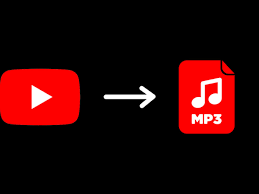YouTube to MP3 Converter Relevance: The predominant legal concerns pertaining YouTube to mp3 converter relate with copyright regulations and terms of service breach. YouTube's terms also forbid downloading of content without the platform providing a such that button or link. But even so, more than 40% of internet population globally have used a YouTube to MP3 conversion service at least once in the past. This indicates how frequently these tools are being searched for and why there is still demand around them.
A crucial legal element is the Digital Millennium Copyright Act (DMCA) in the USA. This boils down to a pirated content and if the creators of something did not originally permit their stuff, then it is illegal which means both service providers and users will get into trouble. Of course, this lawsuit was not the only instance in 2017 of YouTube + MP3 being taken to court. org, the largest converter in the world at that time was eventually closed down after being sued by music labels for copyright infringement. The total effect of this case was to produce a watershed moment in drawing attention to the vulnerabilities associated with operating and employing such services.

The legal doctrine of “fair use” is mentioned in industry jargon as a circumstance that can be used to excuse the limited reproduction or incidental inclusion within an original work, particularly where such reproductions substantially reproduce copyrighted images. But the flue song and videos normally concern a large amount of works that go beyond fair use, particularly regarding commercial or leisure uses. A 2021 International Federation of the Phonographic Industry (IFPI) survey found that nearly 57% percent of music piracy falls into a category known as stream-ripping, which involves converting songs from YouTube to MP3. It is a clear demonstration of the size of the problem copyright holders are worried about.
Despite these relief, using converters to download the contents without the approval of their creator is still in a grey area on many districts as per legal experts. In a statement, IFPI Chief Executive Frances Moore says stream-ripping is “the most prevalent and fastest-growing form of music copyright infringement.” He points to both the economic cost as well the legal liability in light of this activity.
It is also important to note, for absolute clarity with your questions on this site — while converting some non-copyrighted content (for example public domain materials) might not be illegal; almost all music, videos or educational material on YouTube are copyrighted. As such, legality is a case that will depend on specific content and legal framework.
As such, YouTube to MP3 on the surface appear as a safer option – but it still crucial that you be watchful and well-versed about what exactly are converting.